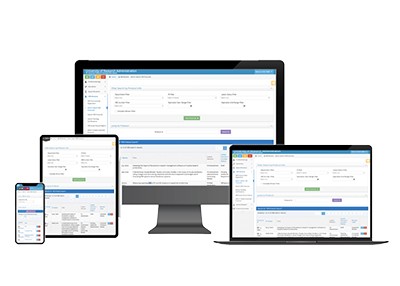Proposal Preparation Resources
These proposal preparation resources should assist in keeping track of the required components of a proposal, but are not substitutes for closely reading the relevant Grant Proposal Guide or sponsor guidelines.
Please work with your SRS contact to ensure that your proposal is compliant with sponsor requirements, or it may be returned without review.
Postdoctoral Candidate and Graduate Student Mentoring
NSF Postdoctoral and Graduate Student mentorship Requirements for New Proposals and Awards
The updated NSF PAPPG Proposal and Award Policies and Procedures Guide includes the requirement for mentoring plans to be included in all research proposals requesting funding to support postdocs and graduate students. Additional information may be found here - https://new.nsf.gov/policies/pappg/24-1/ch-2-proposal-preparation#ch2D2i-i .
- A Mentorship Plan template is provided and should be tailored to the project, PI, and mentee(s).
- Proposals that do NOT include a section on mentoring activities will be returned without review.
Mentoring activities include, but are not limited to:
- career counseling
- training in preparation of grant proposals
- publications and presentations
- guidance on ways to improve teaching and mentoring skills
- guidance on how to effectively collaborate with researchers from diverse backgrounds and disciplinary areas
- training in responsible professional practices
The following resources are available at RIT to assist Mentors, Postdoctoral candidates, and Graduate students
In response to the growing movement to provide consistent and quality mentorship to future researchers and academics, a variety of resources are available.
- Rochester Institute of Technology provides a variety of activities for graduate students and postdocs to improve their teaching and mentoring skills through the Center for Teaching and Learning. The Center provides workshops, classroom observations, one-on-one consultation, and Technology options for the classroom.
- RIT faculty staff and student have access to the Collaborative Institutes Training Initiative (CITI) online training website, where courses such as the responsible conduct of research (RCR) and IRB training are available. Topics covered include mentor/trainee responsibilities, research misconduct, authorship and responsible publishing, etc. Visit The Responsible Conduct of Research Committee (RCRC) Resources for Research Ethics Education for additional information. Sign up instructions may be found here - https://www.rit.edu/srs/about/important-updates/sponsored-research-novelution-update
- RIT’s Graduate School office acts as a central hub, enhancing the academic journey for graduate students by cultivating a diverse scholarly community and offering robust professional development programs. This supportive environment, backed by dedicated faculty and staff, empowers students to excel in their research, scholarship, and creative endeavors. It provides many resources and counseling services for Graduate students.
- Doctoral Student Association
- Graduate Student Toolkit
- Social Media Presence to share and foster information sharing and connections
Several external agencies and programs also provide useful tools and resources for Mentorship activities
- The National Digital Library for Ethics in Science and Engineering’s beta site is a digital repository of materials on ethics and the responsible and ethical conduct of research in science and engineering, including the social sciences. It was developed in response to the America Creating Opportunities to Meaningfully Promote Excellence in Technology, Education, and Science (COMPETES) Act.
- The National Academy of Engineering Online Ethics Center provides resources for the exploration of issues in the responsible conduct of research among students, postdoctoral fellows and research fellows in a modular course in research ethics as well as providing case studies and commentaries written by graduate students and postdocs.
- An annual review and an Individual Development Plan for Postdoctoral Fellows(.pdf) developed by Federation of American Societies for Experimental Biology (FASEB) provides a planning process that identifies both professional development needs and career objectives. Please visit - https://myidp.sciencecareers.org/ for additional information.


